Lichess Cheating Probability (Experimental)
How to use
- Open the game on Lichess and click Analysis board.
- Click Request a computer analysis and wait until it completes.
- Copy the game URL and paste it below, then click Analyze.
Note: Only Rapid/Classic games with ≥5 minutes initial time are analyzed.
Why Cheating in Chess is a Bad Idea
Chess is a duel of minds. Winning feels best when it’s your thinking that does it!
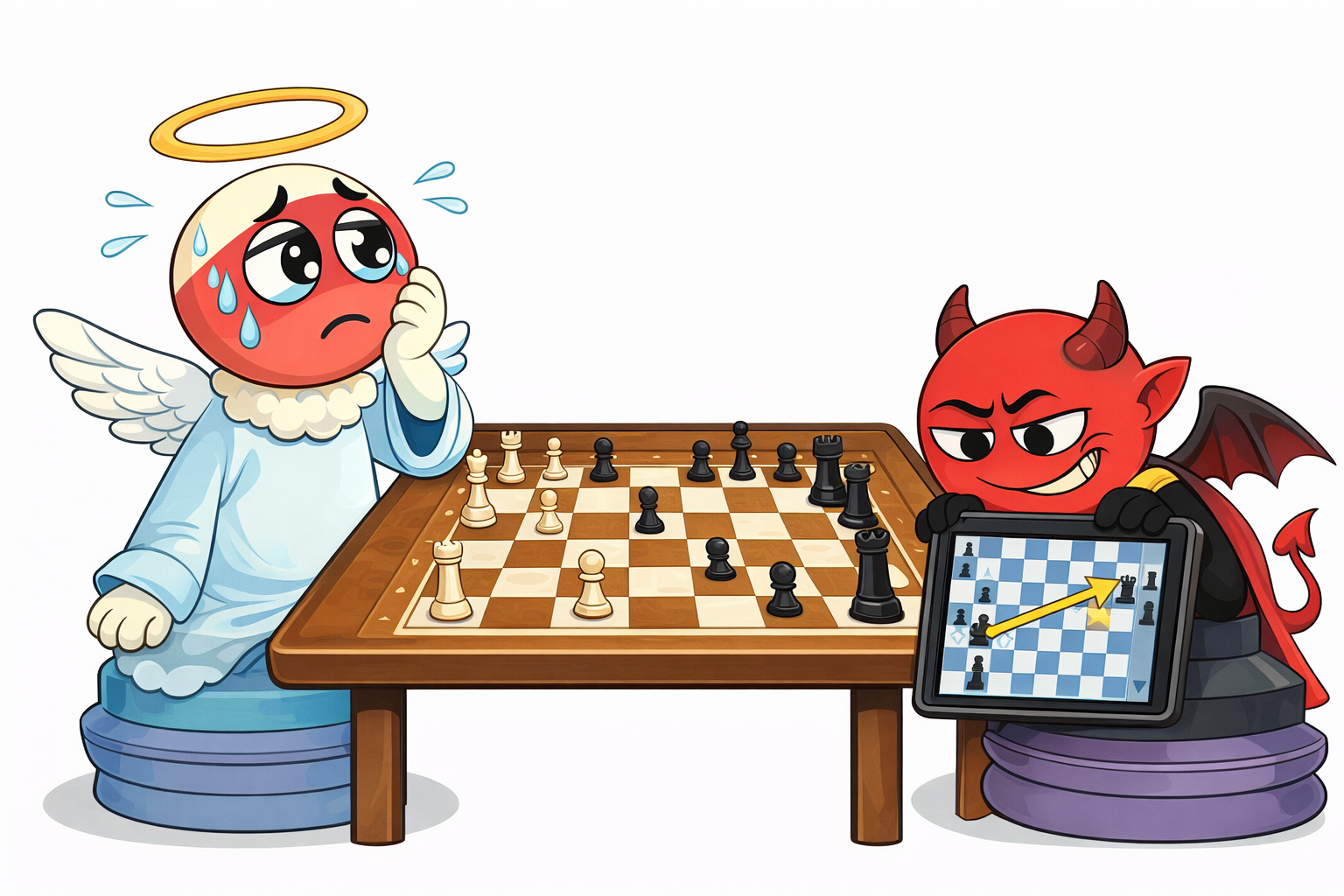
What is Cheating in Chess?
- Using a computer or app to tell you moves during a game.
- Getting secret help from someone else.
- Doing tricky things to confuse an opponent or break rules.

Why It’s Not Fair
- Both players must follow the same rules.
- Cheating breaks trust and makes others feel bad.
- Fair play is how everyone has fun.
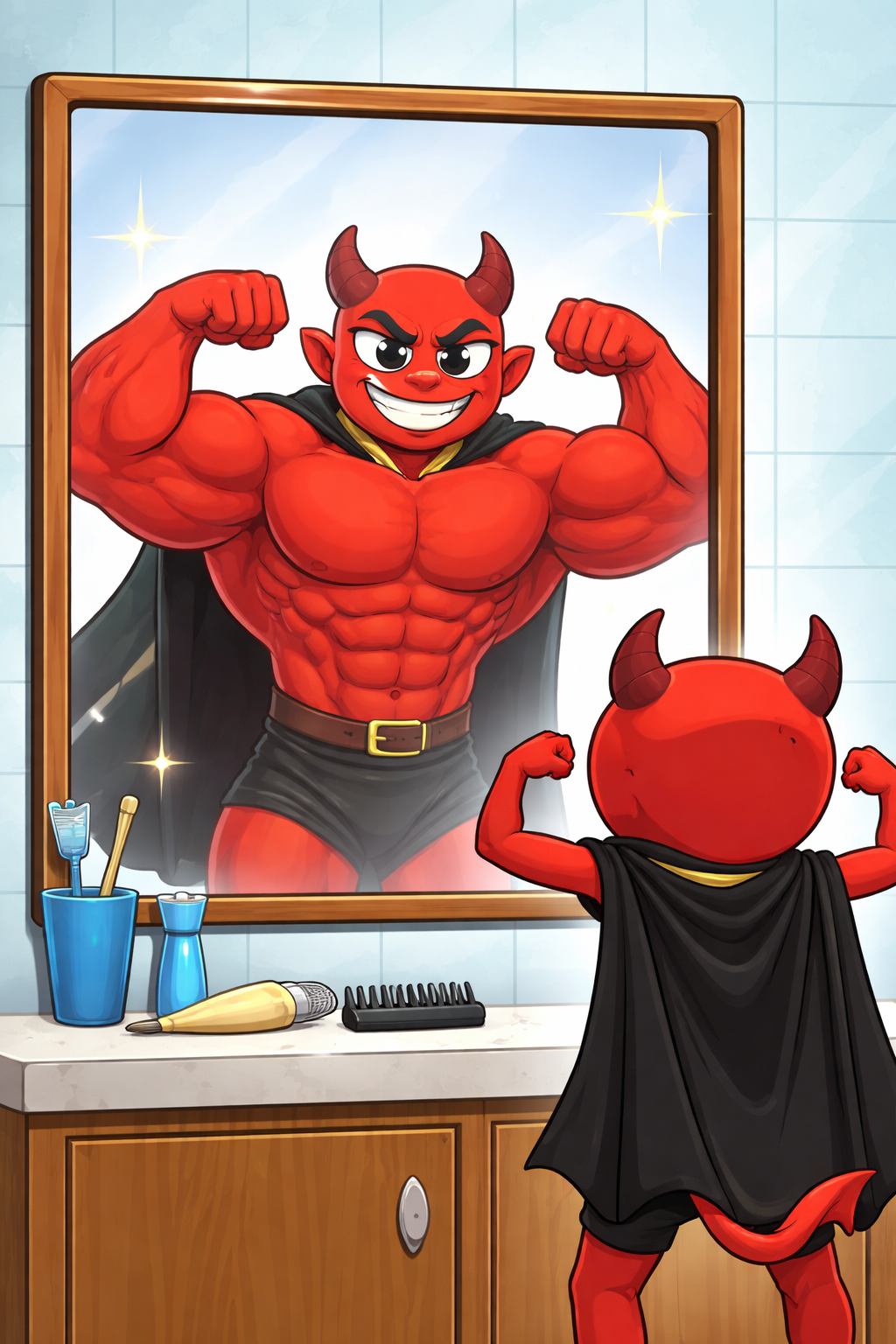
It Doesn’t Show Your Real Level
- If a computer plays for you, the moves aren’t yours.
- You can’t tell how strong you really are.
- Real progress = real thinking.
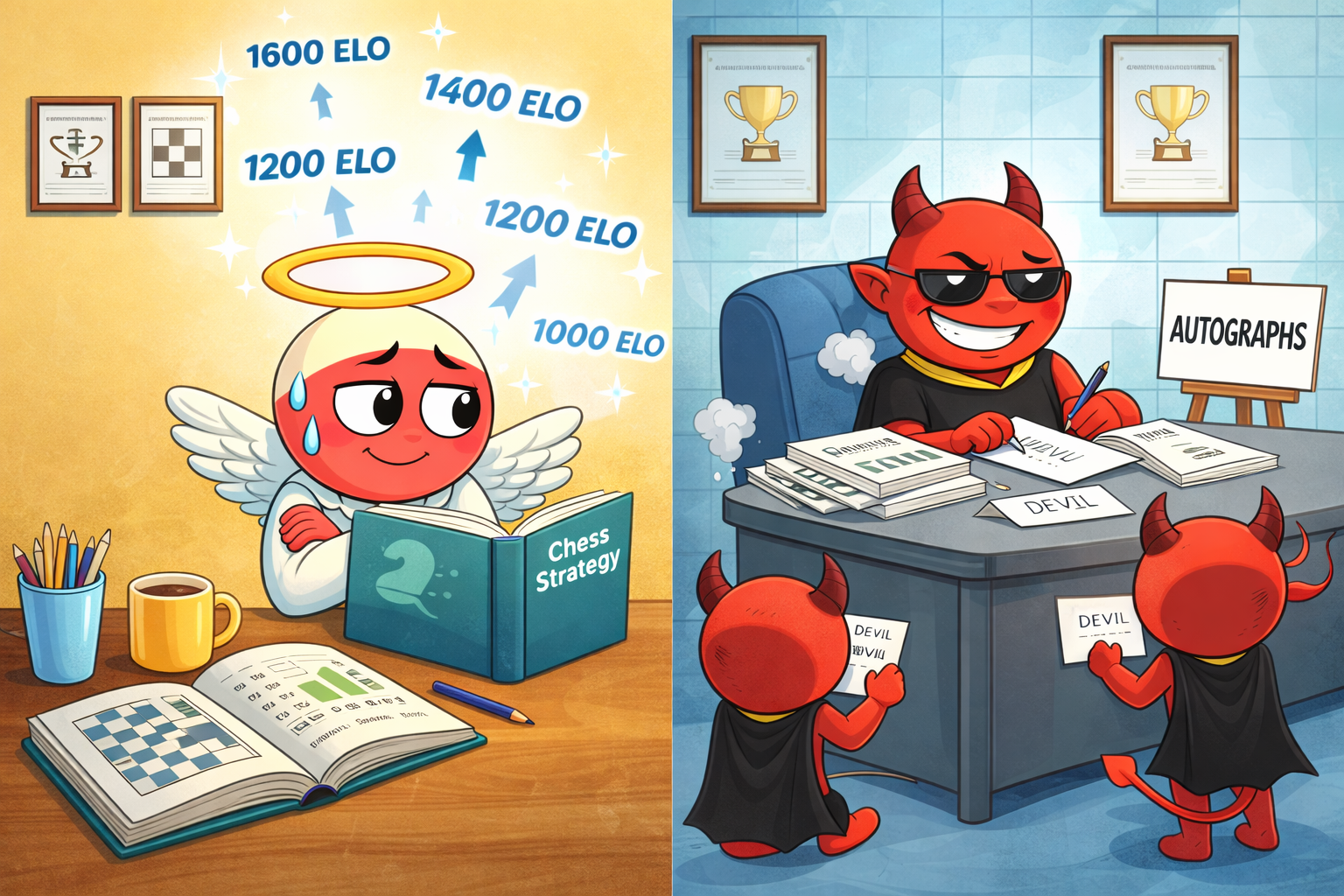
You’ll stop improving
- You’ll stop learning and getting better
- You’ll just enjoy the few wins as long as they last
- Others will get ahead the normal way: by studying and learning
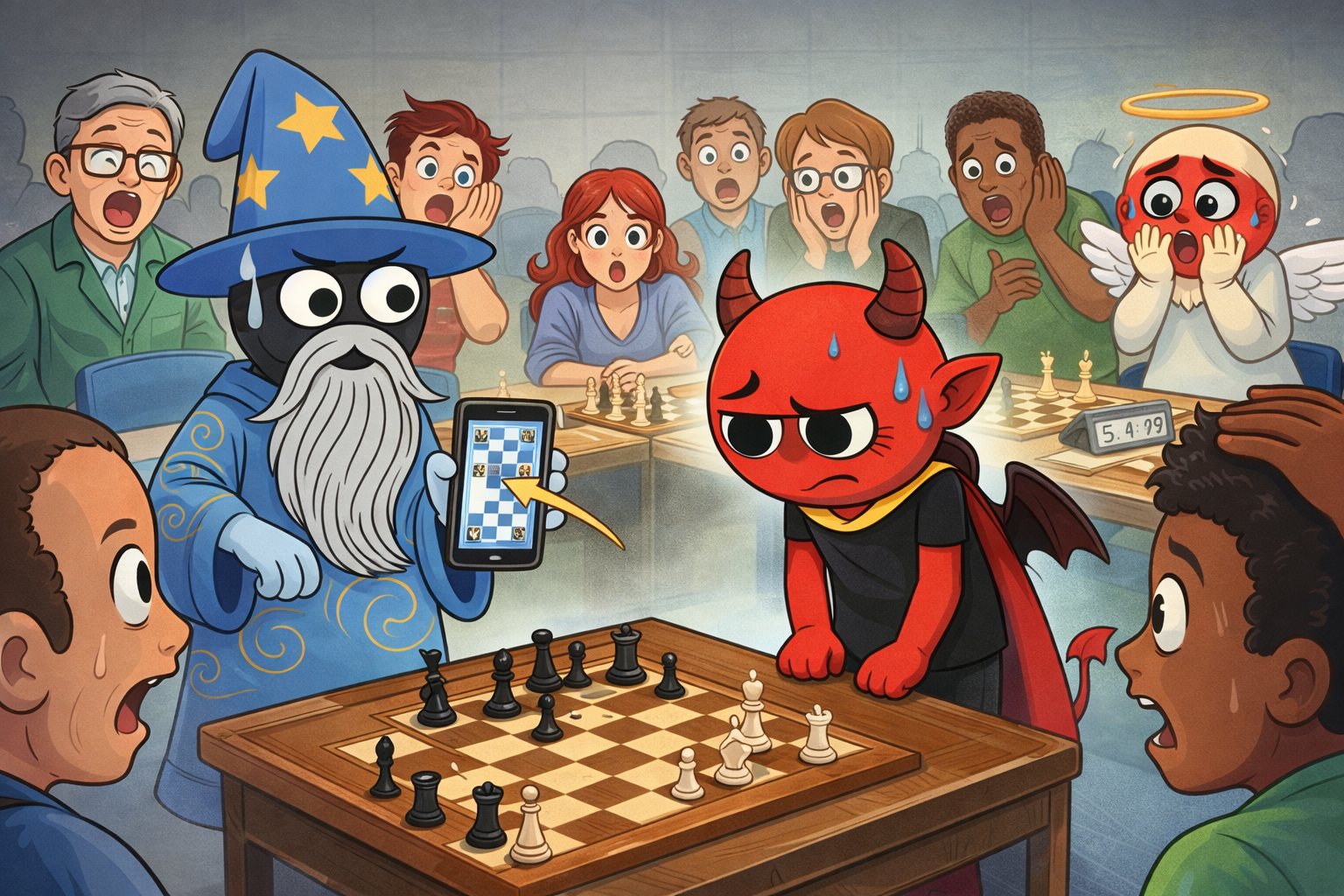
You’ll Get Caught (and It’s Embarrassing)
- Moves that are too perfect look suspicious.
- Sudden huge rating jumps raise questions.
- Online tools can detect unusual play patterns.
Your reputation matters—protect it by playing fair.
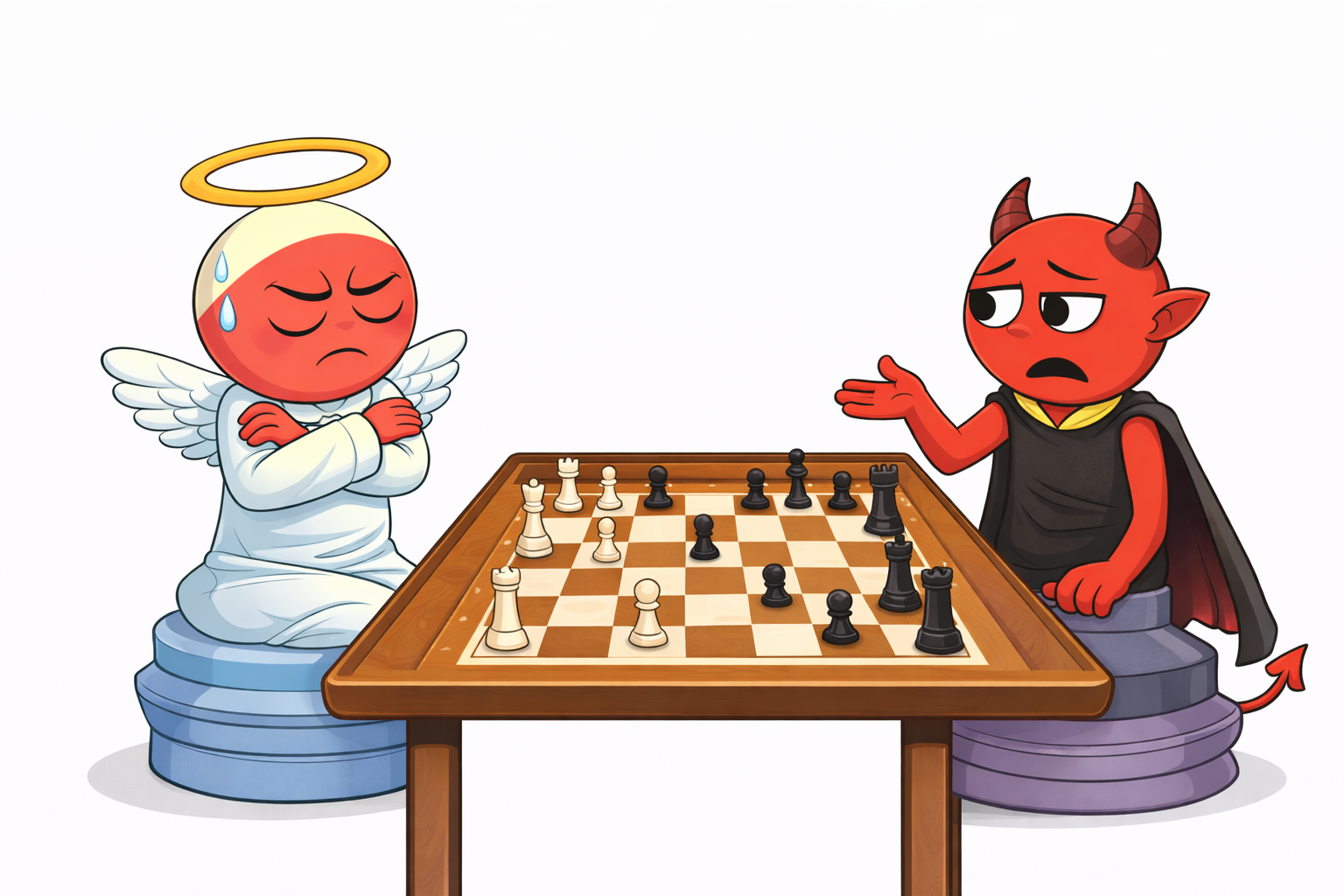
Cheating Spoils the Game
- Chess is fun when it’s honest.
- Trust makes tournaments and clubs enjoyable.
- Fair games make real friendships.